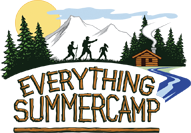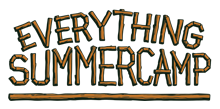Hey, Adventurers!
Summer camp is full of adventure. Thrilling times abound whether they be in the water, in the woods, or high up in the air! Just about every camp boasts a Ropes Course. It’s sort of a summer camp staple—these structures of wood, cables, and rope that are strung between trees and poles. And yet, Ropes Courses are much older than summer camp. Much, much older. 
No one knows who created the first Ropes Course, nor do we know when or where the first one was constructed. What we do know is that they go at least as far back as ancient times when early civilizations created advanced obstacle course challenges for their military training.
Despite not knowing the original inventor of Ropes Courses, physicians and specialists give credit to Georges Hébert for the ‘modern’ Ropes Course.
Born in 1875 Paris, Mr. Hébert became a naval officer of France in the early 1900s. During his service, he was stationed on the Martinique island in the Caribbean Sea. A major volcano eruption in 1902 caused disaster for one little town. The first officer to arrive at the scene, Hébert orchestrated the evacuation and rescue of more than 700 residents!
This experience stayed with him the rest of his life and cemented his concept that soldiers must meet their athletic skill with altruism and courage for their best performance. Along the way he came up with his own personal motto: Be strong to be helpful.
After his time in the Navy, he became a pioneer of physical education in the French military. His naval background gave him a unique idea of an obstacle course—Navy troops would create obstacle courses on the decks of ships which utilized all the aerial exercises that we see in Ropes Courses.

Be sure to test your skills in the ‘Natural Method’ or ‘Hébertism’ during your next opportunity at summer camp. Bring your bravery and, remember: it’s not just a challenge—it’s a lot of fun too! Till next time, Campers! And, as always, thanks for reading!
- John



